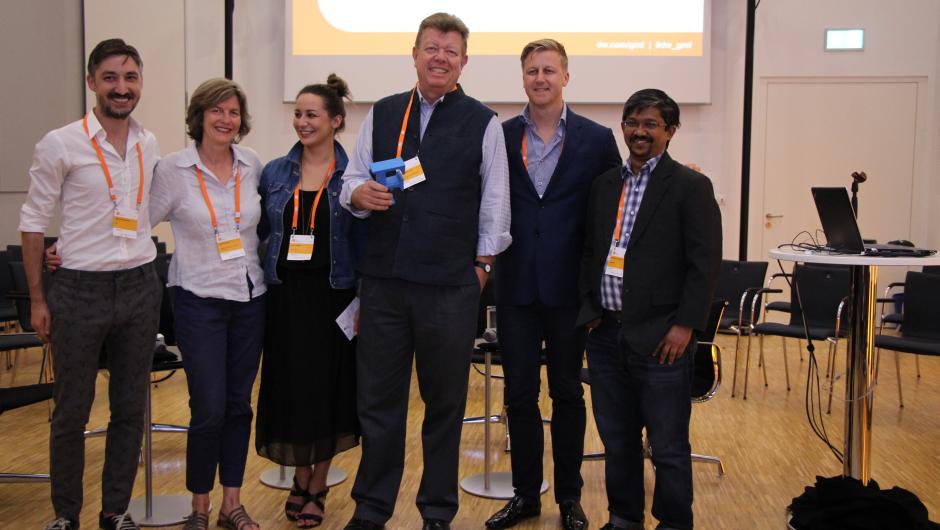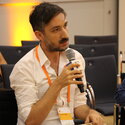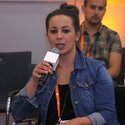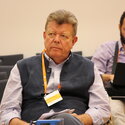Social Media
What is the Role of Social Media in the Polarization of Societies?

The panel, hosted by Friedrich Naumann Foundation, during the 10th anniversary edition of the Global Media Forum focused on one of the hottest topics in the post-truth world of fake news and social media bubbles- whether social media plays a role in the polarization of societies. Journalists and media experts from Turkey, Poland, South Africa and Malaysia shared the experience on the ground. The discussion started with exploring the different types and reasons of polarization in the four countries. According the Turkish journalist from Platform.24, Murat Çoban, media does not play such an important role in the polarization in society in Turkey.
In Turkey there is a highly polarized society. Polarization is not a new phenomenon. It has been going on in Turkey for years, even centuries.

Find the interview with Murat Çoban below.
In Poland, Anna Dudek shared that the main dividing lines in the society are social, economic, political divisions. According to the editor of Oko.press, polarization has increased since the right-wing party, Law and Justice, got in the government.
The government in Poland is using certain narrative to divide the society. The more divided the society is, the easier it is to confuse, to manipulate people and to use propaganda tools. It is exactly what the public media (national TV, radio) is doing.

Watch a short interview with her below.
In Malaysia, according to Premesh Chandran, whenever the government feels challenged, they tend to ramp up the discourse around religion and race, in order to galvanize one community against another. In South Africa it seems that often the government resumes the old adage of class and racial divisions, whenever they want to entrench divisions and polarize people. While in reality, employment and economic opportunities are most important for the society, not race, not ideology. According to the broadcaster Gareth Cliff, there are often cases, in which social media is used and abused creatively by political agents in order to drive the public discourse towards perception of widening racial divisions.
The next focal point of the panel discussion explored whether the social media has worsened the existing polarization of societies and whether societies will be more harmonious with or without social media.
Gareth Cliff pointed out that overall social media has given a voice to the people of Africa, a space to articulate their points of view. However, the high costs of internet connectivity still in South Africa limit the possibilities of diverse information, available to everyone. Most of the traditional media has become as disreputable as social media. Overall, there is still a multitude of media outlets. What matters in the end, according to the founder of cliffcentral, is to be able to decide for oneself what and whom to trust.
This may sound counterintuitive. Press freedom in South Africa is under decline, but thanks to the internet individual freedom is on the increase.

Find a short interview with him below.
According to Murat Çoban, social media is not the one to blame for the polarization in Turkey, which has existed for long before the arrival of social networks. Any new communication technology changes dramatically the history and in moments like this suddenly the divisions become more visible. Social media has similar revolutionary impact as the invention of the printing press. “Social media is not a criminal” summarized the Turkish journalist.
Social media is not the criminal. But it can be a solution. A solution to the very polarization of societies. Even though we see the visual representation of polarization on the social media, it is in fact what is happening in our societies in real life. Why would we blame when it happens on the social?

Premesh Chandran from Malaysiakini believes that social media is not bad in itself. He says that publishers need to understand the dynamics of the waves of mis- and dis-information, especially in social media, and to try to distil their strategies of influence, in order to frame counter-strategies. The best counter-strategy is to counteract fake news with facts. The goal of Malaysiakini is not to engage with propaganda, but to counter false information. Likewise, for the Polish fact-checking platform, Oko.press what matters most is to go back to the roots of journalism, which is “telling the truth and verifying the facts”.
In the end, the moderator, Ronald Meinardus, the Head of Regional Office South Asia of the Friedrich Naumann Foundation, concluded that the result after the discussion is half and half. Social media can have a negative impact in the polarization of societies, but we have to account for the political, social and economic conditions in the countries as well. "The problems of polarization have existed long before the arrival of social media" summarized Meinardus.
Find a short interview with him below.
FNF likes coming to the Global Media Forum, as this is an international conference, which regularly and with a lot of intensity, is discussing freedom of expression and freedom of the press. This is a cause, which is very dear to us as well as a liberal foundation.

Listen to the whole panel discussion below.
Learn more below about the Global Media Forum 2017 and the role of social media in the polarization of societies.